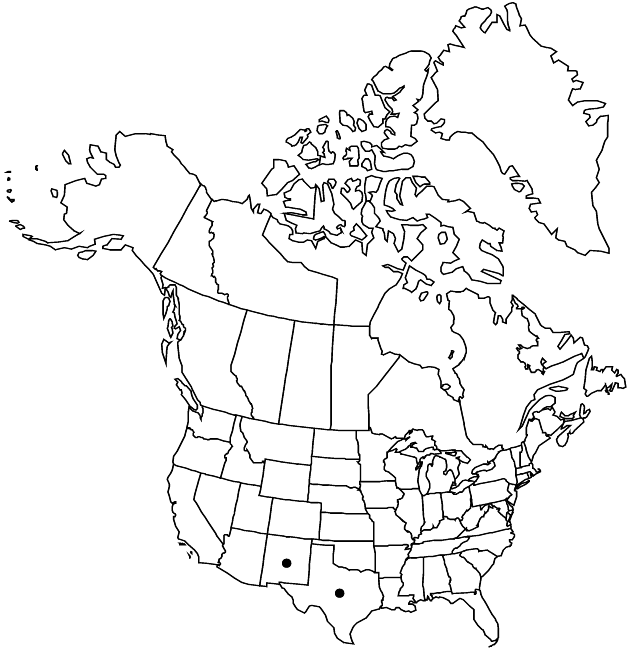Aphanostephus riddellii
Fl. N. Amer. 2: 189. 1842.
Perennials, 10–40(–50) cm (caudices usually woody, stems 1–5+); vestiture sparsely hispidulous to puberulent, stem hairs spreading to deflexed or antrorse, 0.2–0.5 mm. Phyllary apices long-acuminate. Ray florets 30–75. Disc floret corollas: bases indurate, not conspicuously swollen. Cypselae: hairs apically glochidiate; pappi coroniform, minutely ciliate or lacerate, 0.1–0.3 mm. 2n = 10, 20.
Phenology: Flowering Mar–Aug(–Oct).
Habitat: Open sites, often calcareous, often with scrubby oaks
Elevation: 100–500 m
Distribution

N.Mex., Tex., Mexico (Coahuila).
Discussion
Aphanostephus riddellii is the only perennial in the genus. The caudex usually is woody, bearing numerous stems. The distal cauline leaves (upper half of stem) usually are linear, the basal and proximal cauline are conspicuously broader, spatulate, and dentate to pinnatifid. In other species, distal leaves usually are more similar to proximal.
Selected References
None.